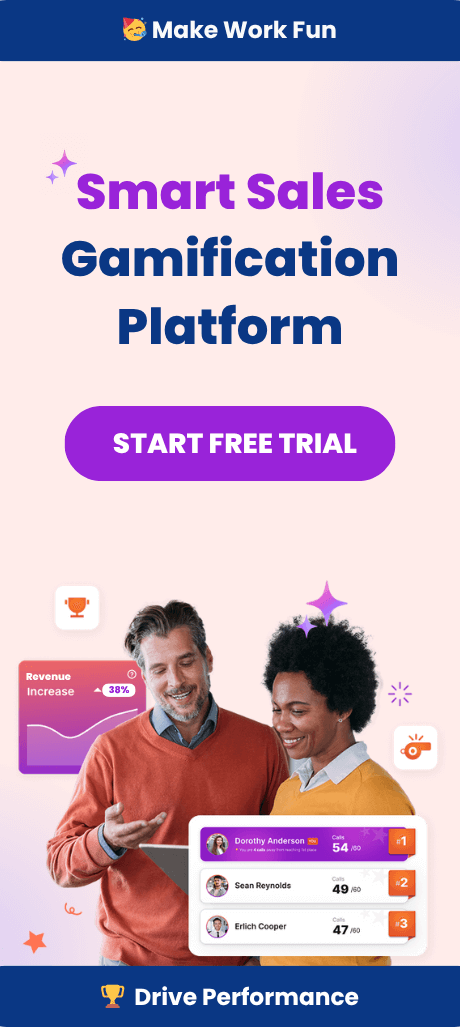Engagement in sales is a complex interplay between personal connections and product knowledge. Sales engagement refers to the process of interacting with potential customers throughout the sales cycle, using various communication channels, sales tactics, and multichannel engagement strategies to build relationships with customers and increase sales effectiveness.
Understanding which aspect carries more weight can significantly impact your sales success and overall strategy.
In this article, you will learn:
- The role of personal connections in sales engagement
- The importance of product knowledge for effective sales
- How to balance both elements for optimal sales performance
Let’s explore the nuances of sales engagement.
The Role of Personal Connections in a Sales Engagement Platform
Building trust with your customers is paramount in sales. Personal connections foster trust and loyalty, creating a foundation upon which long-term relationships are built.
Throughout the sales cycle, from initial contact to closing the deal, personal connections play a crucial role in building relationships and increasing sales effectiveness.
When a salesperson genuinely understands and empathizes with a customer’s needs, it can lead to a more meaningful interaction and a higher likelihood of closing a sale.

Developing Strong Listening Skills To cultivate these connections, it’s essential to develop strong listening skills. Active listening enables salespeople to gather valuable insights into a customer’s pain points and preferences, allowing them to tailor their pitch more effectively.
Techniques such as personalized follow-ups, remembering key details about the customer’s life or business, and showing genuine interest in their success can make a significant difference.
Beyond the Initial Sale Additionally, relationship-building extends beyond the initial sale.
Regular check-ins, providing valuable content or resources, and celebrating milestones with your customers can further strengthen the bond and encourage repeat business.
Establishing Emotional Bonds Personal connections also help in establishing emotional bonds with customers. When customers feel understood and valued, they are more likely to stay loyal to your brand. Emotional engagement is a powerful driver of customer loyalty and can differentiate your business from competitors.
Storytelling as a Tool One of the most effective ways to build personal connections is through storytelling. Sharing stories about how your product or service has positively impacted other customers can create a sense of relatability and trust.
Customers are more likely to connect with your brand when they see real-world examples of how it has made a difference.
Enhancing Customer Experience Moreover, personal connections can enhance the overall customer experience. By understanding your customers’ preferences and anticipating their needs, you can provide a more personalized and enjoyable buying journey. This not only increases customer satisfaction but also boosts your chances of repeat business and referrals.
Leveraging Technology In today’s digital age, maintaining personal connections can be challenging, especially with the rise of remote interactions. However, technology can also be leveraged to enhance personal connections. Virtual meetings, personalized emails, and social media interactions can help you stay connected with your customers and build meaningful relationships.
Case Study: Zappos One example of a company excelling in personal connections is Zappos. Known for its exceptional customer service, Zappos empowers its employees to go above and beyond to create memorable experiences for customers. Whether it’s sending a handwritten thank-you note or surprising a customer with a free upgrade, Zappos demonstrates the power of personal connections in building customer loyalty.
The Importance of Product Knowledge for an Effective Sales Team

While personal connections are crucial, product knowledge is equally important. A salesperson’s confidence and credibility stem from a thorough understanding of the product they are selling. This knowledge not only boosts the salesperson’s confidence but also reassures the customer that they are making an informed decision.
Sales enablement helps in providing sales teams with the necessary resources and training to enhance their product knowledge, thereby improving their overall sales performance.
Addressing Objections Effectively Product knowledge allows salespeople to address objections effectively. When customers have concerns or questions, a well-informed salesperson can provide accurate and compelling answers, thereby alleviating doubts and moving the sale forward. Furthermore, understanding the product inside and out enables salespeople to highlight its unique features and benefits, demonstrating how it can meet the customer’s specific needs.
Educating Customers In addition to addressing customer concerns, product knowledge is essential for educating customers. Today’s buyers are more informed and expect salespeople to provide valuable insights and information. By sharing detailed product knowledge, salespeople can position themselves as trusted advisors and help customers make well-informed decisions.
Building Credibility Product knowledge also plays a critical role in building credibility. Customers are more likely to trust and buy from salespeople who demonstrate a deep understanding of the product and its applications. This credibility can set your business apart from competitors and create a positive reputation in the market.
Continuous Learning and Training To develop comprehensive product knowledge, salespeople should undergo regular training and stay updated with the latest product developments. This can include attending product training sessions, reading product manuals, and participating in hands-on demonstrations. Additionally, sales teams should collaborate with product development and marketing teams to gain insights into product features, benefits, and updates.
Role-Playing Exercises Another effective strategy for enhancing product knowledge is through role-playing exercises. Salespeople can practice different sales scenarios and learn how to effectively communicate product information and address customer objections. Role-playing can also help salespeople build confidence and refine their sales techniques.
Case Study: Apple One company that excels in product knowledge is Apple. Apple store employees, known as Apple Geniuses, undergo extensive training to become experts in Apple products. This deep product knowledge enables them to provide exceptional customer service and help customers make informed purchasing decisions. Apple’s emphasis on product knowledge has contributed to its reputation for excellence and customer satisfaction.
Balancing Personal Connections and Product Knowledge in Sales Engagement Strategies
The key to successful sales engagement lies in balancing personal connections with product knowledge. An integrated sales engagement strategy that combines empathy with expertise ensures that customers feel valued and informed. A comprehensive plan can help sales teams effectively engage prospects, accelerate sales, and grow the business by optimizing interactions and leveraging technology.
Integrated Approach for Success Salespeople who excel in both areas are often the most successful. For example, consider a salesperson who not only remembers personal details about a customer but also knows exactly how their product can solve a particular problem for that customer. This combination creates a powerful, persuasive narrative that resonates with the customer on multiple levels.
Continuous Learning and Development To develop both personal connections and product knowledge, salespeople should invest in continuous learning and development. Regular training sessions, role-playing exercises, and staying updated with industry trends can enhance their skills. Additionally, leveraging customer relationship management (CRM) tools can help salespeople keep track of customer interactions and preferences, further strengthening their engagement efforts.
Strategic Time Management Balancing personal connections and product knowledge requires a strategic approach. Sales teams should establish clear goals and objectives for both areas and allocate time and resources accordingly. This can include dedicating specific days for relationship-building activities and others for product training and development.
Cross-Functional Collaboration One effective strategy for balancing personal connections and product knowledge is through cross-functional collaboration. Sales teams can work closely with marketing, product development, and customer support teams to gain a holistic understanding of the customer journey and product offerings. This collaboration can lead to a more cohesive and effective sales strategy.
Role of Sales Managers Additionally, sales managers play a crucial role in fostering a balanced approach. By providing regular feedback, coaching, and support, sales managers can help their teams develop both personal connections and product knowledge. This can include conducting regular performance reviews, setting individual development plans, and offering ongoing training opportunities.
Utilizing Sales Engagement Platforms Sales engagement platforms and tools can also facilitate the balance between personal connections and product knowledge. Platforms like Outreach and SalesLoft provide sales teams with the tools they need to manage customer interactions, track engagement metrics, and access product information. These platforms can streamline sales processes and enhance the overall effectiveness of sales engagement efforts. A sales engagement platform plays a crucial role in managing customer interactions and tracking engagement metrics, enabling personalized campaigns and optimizing sales activities.
Measuring and Optimizing Performance Another important aspect of balancing personal connections and product knowledge is measuring and optimizing performance. Sales teams should track key metrics related to both areas and regularly review their performance. This can include metrics such as customer satisfaction scores, engagement rates, and sales conversion rates. By analyzing these metrics, sales teams can identify areas for improvement and make data-driven decisions to enhance their engagement strategies.
Finding the balance
In summary, effective sales engagement requires a delicate balance between personal connections and product knowledge. Building trust through genuine interactions and empathy is essential, but it must be complemented by a deep understanding of the product to address customer needs convincingly.
To take your sales engagement to the next level, consider integrating advanced sales techniques and exploring customer relationship management strategies. Tools like Spinify can help engage and motivate your sales team, enhancing both their personal connections with customers and their product knowledge.
By focusing on these key elements, you can accelerate revenue growth by creating a more dynamic and successful sales strategy that drives results and fosters long-term customer loyalty.



